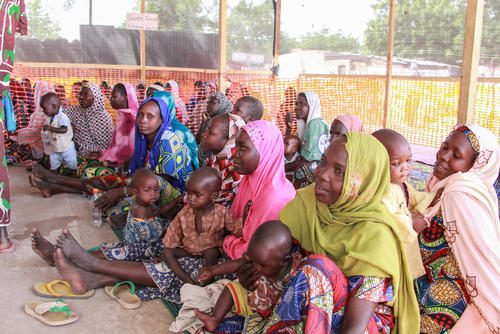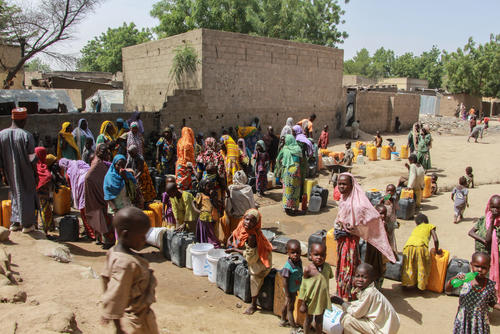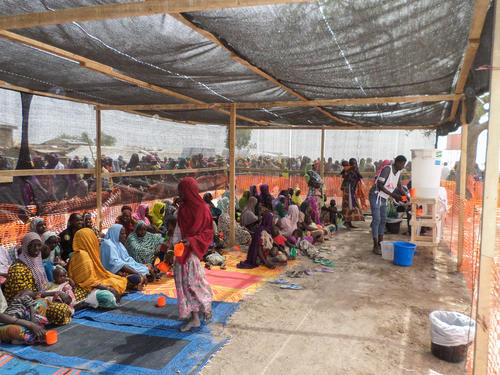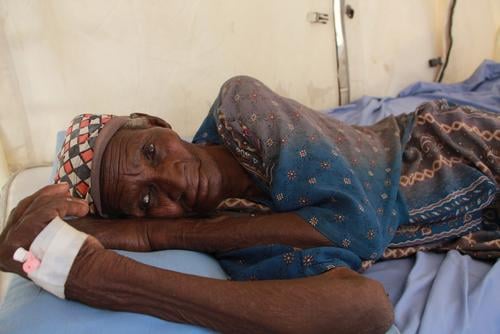Nigerian refugees in Cameroon are being forcibly returned to northeast Nigeria. In March 2017, three of them told MSF staff their stories.
Mayara*: “They did not explain why they were sending us away”
I’m originally from a village not too far from here, but fled to Kolofata in Cameroon more than one year ago because of Boko Haram. I came here to Banki four days ago.
On the day I was brought here, my wife went into labour and was rushed to the clinic. All my six children are there in Kolofata as well. I was the only one that came here to Banki. I wanted to go see my wife to know how she was doing but there was no way I could do that because we were rounded up by Cameroonian soldiers and were not allowed to leave.
We lived in Kolofata for more than a year and they just decided to send people back to their country without any explanation. We did not tell them we wanted to come back to our country. They forced us to come here. They woke us early in the morning and took us to a field where they herded us all together.
I told them my wife was in labour but they said when I got to Nigeria I should explain to the authorities so they would allow me go back to Cameroon for my family. But since we came here, we’ve been in this compound and can’t go outside without permission.
In Cameroon, we couldn’t resist our deportation because we were helpless and had no choice. They did not explain why they were sending us away and we did not know why.
Living there was not pleasant at all. We had water and food problems. We never benefited from any food distribution. We either farmed or did menial jobs like breaking firewood or selling water to survive. There were days when we went hungry because there was no food. There were people selling drugs so, if your child was sick you had to pay for drugs.
Since I arrived in Banki, I haven’t slept well because I think about my family. I don’t know if my wife delivered safely or what the condition of the child is. I don’t know anything about my family.
We depend on members of the community, who bring us food when they come to visit. None of us has benefited from any distributions.
My biggest problem right now is my family – the fact that they’re not here and I don’t know how they are.
Zara*: “When my husband left, it was difficult to survive because there was no food and no money”
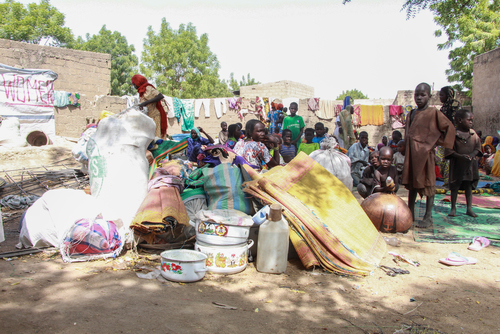
I have two children and we just came back from Cameroon. I’m originally from a village called not too far from here. We left a year ago to Kolofata because Boko Haram were chasing people out.
My husband is here in Banki but we came separately from Cameroon. They [Cameroonian soldiers] left me behind when they brought my husband here nine months ago. I wanted to join him then but I couldn’t and I had been trying since, but it wasn’t possible to get a vehicle coming here. They gathered the men together and when the vehicles came to take them to Banki, they told the women to stay and said the vehicles would come back for us. We gathered our belongings waiting for the vehicles but they never came. I was four months pregnant then, and now my baby is four months old. They only came a few days ago and brought us here.
When my husband left, it was difficult to survive because there was no food and no money. If we managed to get some guinea corn, we would make it last for days. There were days when we went to bed hungry. Sometimes, I would go to neighbours to beg for food for my children when the hunger was unbearable for them.
Malla*: “Since coming here, we have slept without blankets”
I don’t know the whereabouts of my family. They were deported by Cameroonian soldiers a month ago, while I was brought here two weeks ago. The soldiers came and gathered people together. Those who didn’t have Cameroonian ID were put into vehicles and driven away.
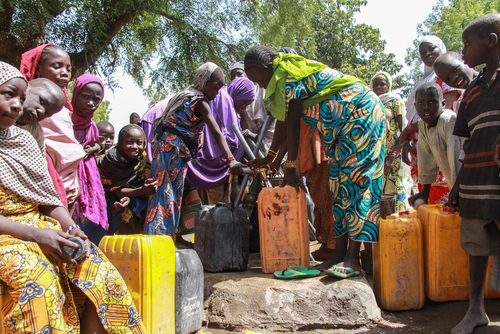
I could only come with the clothes I’m wearing now. They did not even allow me to go inside my house to take some of my belongings. Since coming here, I haven’t heard from my family.
I lived in Cameroon for three years after fleeing Nigeria with my family because of Boko Haram. For the entire duration of our stay there, we never received anything in terms of food or non-food distribution – not once. It was a struggle to get food. Some people worked on farms in exchange for food or money, others worked on building sites as labourers and some had to beg.
Since coming here, we have slept without blankets in this open area. Until recently, when the mats were given to us, we were sleeping on the ground.
It was not my wish to come here but I had no choice. It would have been better if we’d been taken to Pulka or Gwoza, which is our area, rather than here. We couldn’t tell them where to take us to because we were scared they would take us to a different place.
*names have been changed



